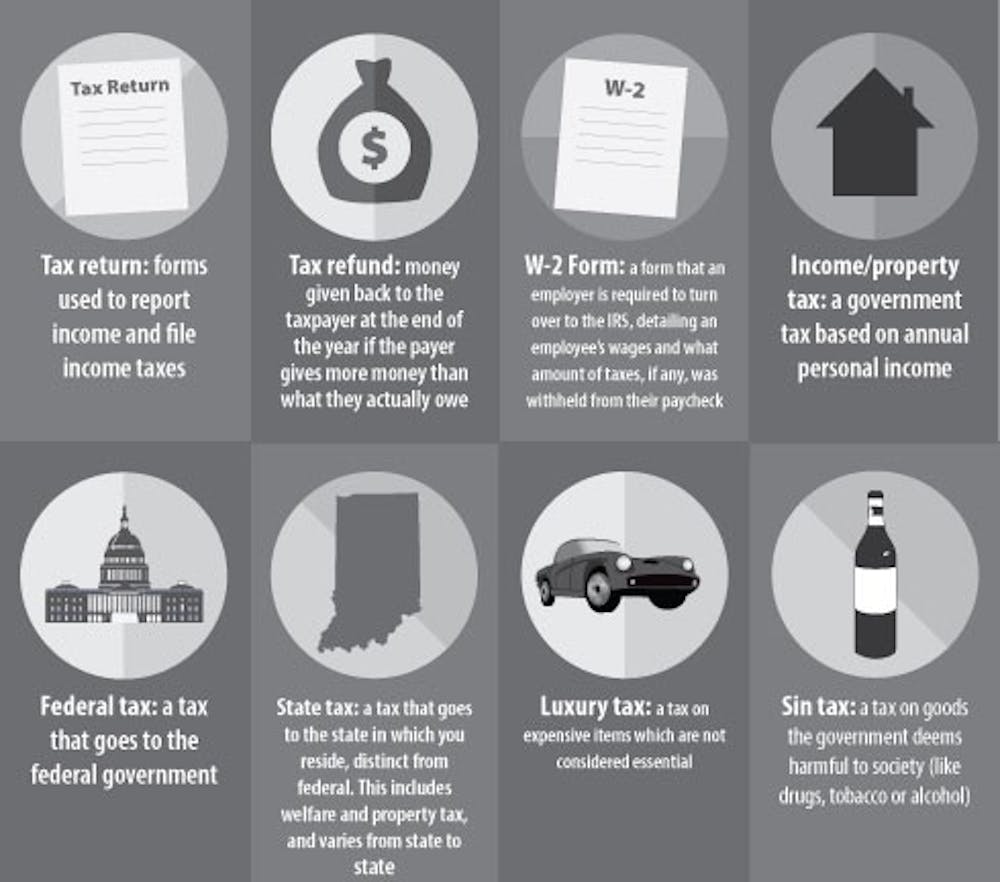By Chrysa Keenon | Echo
 As defined by Webster's Dictionary, a tax is an amount of money that a government requires people to pay according to their income and the value of their property, and is used to pay for things done by the government. Taxes fund public education, public safety, economic growth and national defense. The idea seems pretty harmless. So why does almost every American groan in frustration during tax season?
As defined by Webster's Dictionary, a tax is an amount of money that a government requires people to pay according to their income and the value of their property, and is used to pay for things done by the government. Taxes fund public education, public safety, economic growth and national defense. The idea seems pretty harmless. So why does almost every American groan in frustration during tax season?
According to Adriene Hill from Crash Course, there are three categories of taxes: regressive, progressive and proportional. Regressive taxes are a baseline price that everyone pays based on their differences of income. While this might seem to promote equality, Hill points out that regressive taxes take a larger toll on lower income workers. Progressive taxes are essentially the opposite of regressive taxes, as they move the burden of payments to those with a higher income rate. An income tax is an example of this: you pay more money to the government if you make more money at your job.
"When the IRS calculates how much you owe in taxes, it uses marginal income tax brackets-based on the amount of taxable income you earned in the year. These marginal tax rates represent the highest possible income tax rate you could pay," Hill said.
Proportional taxes affect every taxpayer equally, regardless of their income, such as a flat tax. In a flat tax, someone making $30,000 a year would have to pay the same base fee as someone making $40,000 a year.
Filling out tax forms is not only difficult to the beginner but also time consuming. According to the IRS, the average taxpayer spends anywhere from four to 13 hours filling out their yearly tax forms. It might not seem all that daunting until you wait until the last day to send in your return forms: April 18th.
However, not filling out your taxes can lead to severe consequences. According to the US Tax Center, the longer you wait to pay your taxes, the bigger the penalties are. Penalties start with compounded daily interest and late fees and can become as serious as asset seizure and even jail time.
But the IRS isn't perfect. Occasionally, there is an overcharge from your salary due to your employer withholding taxes from your paycheck, and you will end up paying more than what you owe. According to TurboTax's video "What Is a Tax Refund?", this is a very common occurrence. The government sends you the money back in a check known as a tax refund.
According to the video, "Withholding only estimates your tax but does not always reflect every credit and deduction you're going to take."
Like all good things (such as "free" money), it doesn't last forever. TurboTax's video points out that "you must claim the refund no later than three years from the time you originally file the tax returns or within two years of paying the tax, whichever is later."
Be sure to talk to your parents about taxes and get the forms sent in on time. It's one due date you don't want to sleep through.





